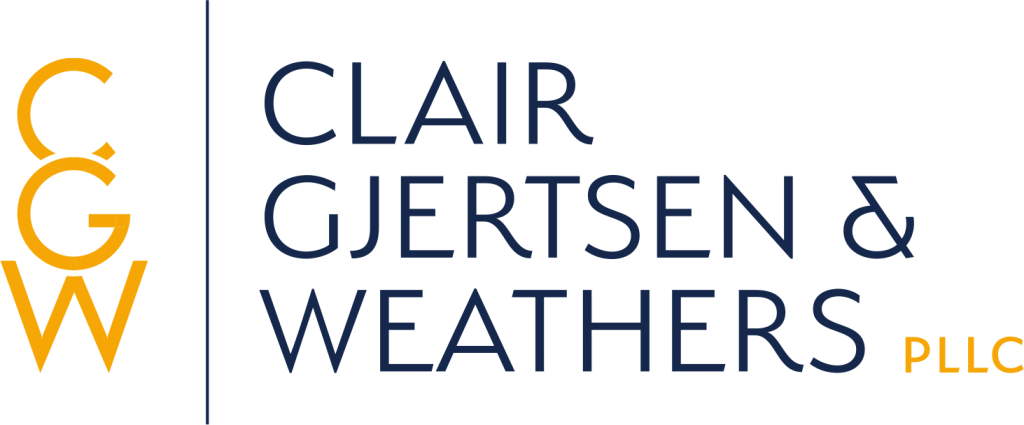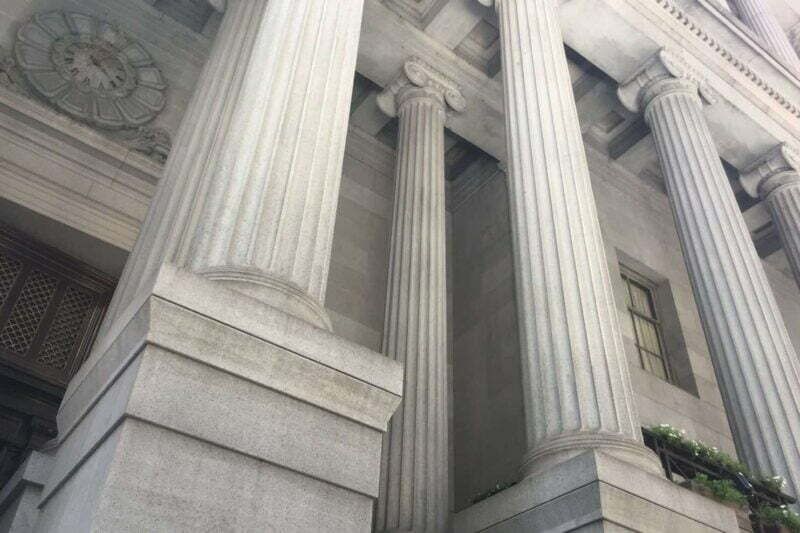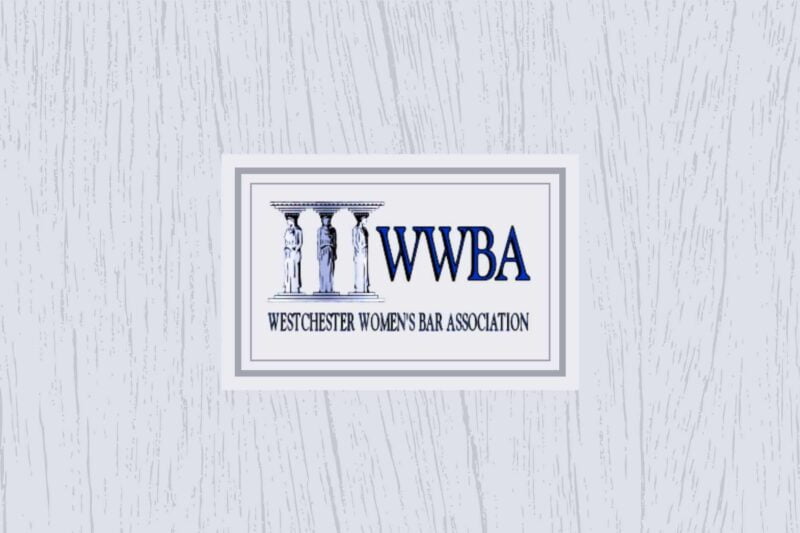NY & CT Foreclosure & Bankruptcy Attorneys
Schedule A Free Consultation 914.472.6202
The New York State Legislature is currently reviewing Bill S5473D that relates to the rights of parties involved in foreclosure actions and provides additional details regarding the commencement and termination of certain actions related to real property. The title of this Bill is the Foreclosure Abuse Prevention Act.
What is the Purpose of the Foreclosure Abuse Prevention Act?
The Purpose and Intent of the Bill is to address the ongoing problem with abuses of the judicial foreclosure process in New York and lenders’ attempts to manipulate statutes of limitations, which problem has been worsened by recent court decisions which, contrary to the intent of the legislature, have given mortgage lenders and loan servicers opportunities to avoid strict compliance with remedial statutes and manipulate statutes of limitation to their advantage.
Specifically, there is a recent decision of the Appellate Division in Citi Mortgage, Inc. v. Ramirez, 192 AD3d 70 (2020), which effectively gives mortgagees a second bite of the mortgage apple, permitting actions to be instituted on a note after a foreclosure action based on the same debt has already been adjudicated to be barred by the statute of limitations.
Furthermore, the bill seeks to amend CPLR Sec. 3217 as it concerns the discontinuance of mortgage foreclosure actions and is a direct response to the Court of Appeals recent holding Freedom Mtge. Corp. v Enge1, 37 NY3d 1 (2021).
What is the Statute of Limitations for bringing a foreclosure action?
New York law has a six-year statute of limitations concerning contracts. See NY CPLR § 213. Because a mortgage is a contract, this limit applies to mortgage foreclosure as well, with each payment becoming its own cause of action, time-barred six years after its due date.
How will this bill help New York homeowners in foreclosure defense?
As a direct result of these judicial decisions, thousands of New York homeowners who secured closure of their cases by operation of longstanding statute of limitations principles are at risk of an onslaught of successive foreclosure actions that would otherwise be barred by the statute of limitations under longstanding statutory and case law. This will cause the loss of countless homes and will burden the Courts with cases that should be barred by the statute of limitations and with excessive motion practice now that the foreclosure moratoriums have ended. This bill levels the fields for all homeowners and ensures the statute of limitation applies to all parties equally without exemption
There are several defenses to foreclosure. Most of the defenses are related to the lender making a mistake. Some examples of foreclosure defenses are lender’s noncompliance to RPAPL Article 13, lack of standing, improper affidavits and statute of limitations.
Does this Bill Apply to all Foreclosure Actions?
The legislature is seeking to apply this bill to all actions governed by CPLR 213 (4) in which a final judgment of foreclosure and sale has not yet been enforced.
Have Questions About Foreclosure Defense?
Clair Gjertsen & Weathers PLLC are proven foreclosure defense attorneys and we continue to monitor this ever-changing foreclosure landscape in New York for our clients. For additional questions regarding the implications of these decisions and the most current foreclosure laws, we invite you to contact Clair Gjertsen & Weathers PLLC by calling 914-472-6202. We look forward to hearing from you.
The hardship stays provided under New York’s COVID-19 Emergency Eviction and Foreclosure Prevention Act of 2020 (CEEFPA) officially ended on January 15, 2022.
How CEEFPA affected foreclosure proceedings?
The CEEFPA was the legislature’s response to protect New Yorkers affected by a financial hardship caused by the COVID-19 pandemic from the threat of immediate foreclosure or eviction. The CEEFPA provided a mandatory stay of any foreclosure or eviction proceeding in which a borrower or homeowner filed a hardship declaration with the court.
The CEEFPA protections initially took effect on December 28, 2020, were extended by Governor Cuomo in May 2021, and were further extended by the legislature in September 2021. Despite calls for an extension of the hardship stays and protests by housing groups in Albany, the last extension expired on January 15, 2022.
CEEFPA has expired, foreclosure proceedings can now “resume in the normal course”
In response to the expiration of the hardship stay, New York’s Office of Court Administration (OCA) issued a memorandum to judges and non-judicial staff along with Administrative Order 35/22 on Monday. For the first time in almost twenty-two months since the pandemic began, the OCA stated that residential and commercial mortgage foreclosure proceedings can now “resume in the normal course.”
What does this mean for borrowers once protected by CEEFPA that are now facing foreclosure in New York?
The courts can now begin processing all active foreclosure matters. This includes:
- Deciding motions that are fully briefed and were previously submitted to the court for a decision;
- Scheduling oral argument or issuing briefing schedules for motions that have not yet been submitted to the court for a decision;
- An increase in the scheduling of settlement conferences pursuant to CPLR 3408; and
- Scheduling foreclosure sales.
Banks will be moving swiftly to get the cases back on the calendar.
Since many foreclosure matters have been stayed or stagnant since the beginning of the COVID-19 pandemic, banks will be moving swiftly to get the cases back on the calendar.
Experienced foreclosure defense attorneys can ensure the rights of homeowners in mortgage default are protected.
If you receive any notices in the mail from the courts or from the banks, it is not too late to know your options. Clair Gjertsen & Weathers PLLC help borrowers facing financial difficulties save their homes and protect them from lender abuses. We understand the complex problems and issues faced by homeowners in mortgage default.
There are options available at every stage of a foreclosure action and only an experienced attorney in foreclosure defense can ensure that all of your rights are protected.
Clair Gjersten & Weathers PLLC has over 30 years of experience in foreclosure defense. For additional questions regarding the foreclosure defense process, we invite you to contact Clair Gjertsen & Weathers PLLC by calling 914-472-6202. We look forward to hearing from you.
New York passes legislation reducing interest rates on judgments involving consumer debt to two percent.
In response to the economic impact caused by the COVID-19 Pandemic, New York Governor Hochul signed into law Senate Bill S5724A also known as the New York Fair Consumer Judgment Interest Act. The Act amends the provisions of New York Civil Practice Law and Rules, also known as the CPLR, to reduce the amount of interest on judgments involving consumer debts against natural persons from 9% to 2%. The goal of the Act is to reduce hardships on individuals caused by the statutory judgment interest rate that has only intensified during the COVID-19 Pandemic.
What is Consumer Debt?
Consumer Debt is defined in the New York Fair Consumer Judgment Interest Act as “any obligation or alleged obligation of any natural person to pay money arising out of a transaction in which the money, property, insurance or services which are the subject of the transaction are primarily for personal, family or household purposes.” Examples of these types of obligations would be:
- Credit Card Debt
- Mortgages
- Medical Debt
- Auto Loans
- Student Loans
- Utility Bills and
- Cell Phone Bills.
What is Statutory Judgment Interest?
Interest is allowed on almost all judgments entered in New York State Courts from the date of judgment until it is paid in full and satisfied. As such, when a consumer debt creditor wins a lawsuit against a debtor, the New York State Legislature authorized the creditor to collect additional interest on the judgment itself to compensate creditors for the cost of any delay in repayment by the debtor.
Does the New York Fair Consumer Judgment Interest Act only apply to existing judgments?
Even though the date that this New York Fair Consumer Judgment Interest Act becomes effective is April 30, 2022, the Act applies retroactively to consumer debt judgments entered before April 30, 2022, as long as the judgments themselves are not yet fully paid and satisfied.
What benefits does the New York Fair Consumer Judgment Interest Act give to consumers?
The New York Fair Consumer Judgment Interest Act will reduce mounting debt for countless individuals as they continue to try to pull themselves out of the economic turmoil that was caused by the COVID-19 Pandemic. Having a reduction in statutory judgment interest will allow individuals to pay off their outstanding debt quicker and move on to the next chapter of their lives.
The importance of hiring an Experienced Consumer Debt Defense Attorney:
Clair Gjertsen & Weathers PLLC are experienced consumer debt defense attorneys. We negotiate with debt collection law firms and remove holds on your bank accounts or garnishments on your wages. For additional questions regarding the consumer debt defense process, we invite you to contact Clair Gjertsen & Weathers PLLC by calling 914-472-6202. We look forward to hearing from you.
Wendy Marie Weathers was featured in the December 2021 / January 2022 issue of the WWBA news.
Wendy has been an active member of the Westchester Women’s Bar Association since 2010.
In the featured interview, Wendy discusses her activities and positions held within the WWBA, her legal career, how the pandemic has made the association’s role even more important, advice she has for up-and-coming lawyers, and much more.
Click here to read the full interview.
Click here to read the December 2021 / January 2022 issue of the WWBA news.
NY Residential Foreclosure Case
On November 17, 2021, the Supreme Court of the State of New York, Appellate Division, Second Judicial Department affirmed a lower court’s holding that granted Defendants (homeowners) motion for summary judgment in U.S. Bank Trust, N.A. etc. v Donna M. Yozzo, et al, ____ AD3d _____ (2d Dept. 2021). Clair Gjertsen & Weathers PLLC represented the winning borrowers in this action, and asserted that the statute of limitations had run on the bank’s right to bring a residential foreclosure action. The bank argued that it was a mortgagee in possession, as it had secured the property, by changing the locks and winterizing the house, and therefore the statute of limitations was tolled. However, the lower court and Second Judicial Department found that the bank’s argument was unsound. The Second Judicial Department did not provide any specific examples of what would constitute a mortgagee in possession, but as there is very minimal case law on what constitutes a mortgagee in possession in New York State, this is a huge win for borrowers across the state.
What is the Statute of Limitations for New York Residential Foreclosures?
Pursuant to CPLR § 213(4), foreclosures of residential real property are governed by a six-year statute of limitations, whereby an action to foreclose a mortgage may be brought to recover unpaid sums which were due within the six-year period immediately preceding the commencement of the action or acceleration.
A mortgage debt is accelerated when the mortgagee has the right to require payment of the entire amount due and the borrower’s right to make monthly payments ends. EMC Mtge. Corp. v Patella, 279 A.D.2d 604, 605-606 (2d Dept. 2001); Fed. Natl. Mtge. Assn. v Mebane, 208 A.D.2d 892, 894 (2d Dept. 1994). Such acceleration must be “clear and unequivocal”. Sarva v Chakravorty, 34 A.D.3d 438, 439, (2006); See, Arbisser v Gelbelman, 286 A.D.2d 693, 694 (2d Dept. 2001); Colonie Block & Supply Co. v Overmyer Co., 35 A.D.2d 897, 897 (1970).
What is a Mortgagee in Possession?
A mortgagee who is occupying the property to the exclusion of the owner; this may happen at any time, even if there has been no default by the mortgagor. A “mortgagee in possession takes the rents and profits in the quasi character of trustee or bailiff of the mortgagor…They are applied in equity as an equitable set off to the amount due on the mortgage debt.” Hubbell v Moulson, 53 N.Y. 225, 228 (1873). See also, Morris v Budlong, 78 N.Y. 543 (1879); Gasco Corp. Gordian Group v Tosco Props., 236 A.D.2d 510; 653 N.Y.S.2d 687 (2d Dept. 1997); Luna Light., Inc. v Just Indus., Inc., 137 A.D.3d 1228 (2d Dept. 2016). A mortgagee in possession can act to toll any applicable statute of limitations, as they are possessing the property, in an effort to improve and/or rent out same in order to offset the subject debt. Further, the collection of rental payments from an alleged mortgagee in possession may not be sufficient alone to toll the statute of limitations, as rental payments that go towards insurances, taxes and repairs would not act to toll the statute, as the monies did not go towards principal or interest.
Changing the locks and maintaining possession to the subject property to the exclusion of the owner is not enough to be a mortgagee in possession. Only when a record is supported by evidence demonstrating actual occupancy for several years, with improvements to the property, and periods of time of renting out said property does a mortgagee in possession relationship exist. LaPlaca v Schell, 68 A.D.3d at 1479-1480. In LaPlaca, the defendant purchased a parcel of land and assumed the already existing mortgage on that land. Thereafter, defendant conveyed half of the parcel to plaintiff in exchange for a release from their mortgage, but the deed was never executed because defendant was in bankruptcy at the time. The court found a mortgagee in possession relationship existed, as Plaintiff had moved into the property for a period of time, and when he was not living there had rented the property to tenants, used the property as a storage area for his business, and made improvements on the property.
Have you defaulted on your mortgage payments and moved out of the property?
You could still have legal rights to your home, and potentially a statute of limitations defense. You could even have the right to bring a lawsuit against the bank to have the mortgage lien marked off your county clerk’s records. Timing is of the utmost importance and it is imperative that you speak with an attorney knowledgeable in residential foreclosures and foreclosure defense. Clair Gjertsen & Weathers PLLC has been helping people through this complex process for the last 40-years. We offer free initial consultations to see what options might be available to you. Please contact us or give us a call at 914.472.6202.
With the foreclosure moratorium created by the COVID-19 Emergency Eviction and Foreclosure Prevention Act of 2020 expiring on January 15, 2022, a rush of co-operative foreclosures will be coming. However, unlike a foreclosure on a house or condominium, the foreclosure process for a co-operative apartment is quite different and can lead to the sale of your co-operative apartment before you realize what is happening.
What makes a co-operative foreclosure different from a house foreclosure?
Dissimilar from a house or a condominium, “co-ops” are not considered to be real property, but are personal property. When you buy into a co-operative, you do not receive a deed but instead receive a certificate of shares in a corporation that owns the interior, exterior, and all common areas of the building. As a shareholder, you are entitled to exclusive use of an apartment in the property. You are also issued a proprietary lease by the co-op, which allows occupancy of a particular unit and states the terms and conditions of their share ownership. When taking out a mortgage loan to purchase the co-op apartment, instead of pledging the property itself as collateral, you pledge your shares as collateral for the mortgage.
How do co-operative foreclosures work?
Foreclosing on a cooperative apartment is a profoundly different process than the one employed to foreclose on a home or a condominium. Since a mortgage on a co-op does not involve real property, a lender can conduct a foreclosure sale under Uniform Commercial Code Article 9 without the need to involve the courts. In New York, this is known as non-judicial foreclosure.
Under Uniform Commercial Code Article 9 two notices are to be served before a foreclosure auction sale on the certificate of shares can begin. First, the lender must serve you with a pre-foreclosure notice ninety (90) days before the sale. The notice must inform you of steps you can take to avoid foreclosure and provide a list of not-for-profit housing counselors in the county where the apartment is located that can assist you. Second, the lender must serve a notice at least ten (10) days before the actual sale notifying you of the date, time, and location that the sale will take place. The statute also requires the lender to run a lien search on the unit in dispute between twenty (20) and thirty (30) days before the sending of the second notice in addition to any additional notice requirements found in the mortgage.
What can be done to stop a co-op foreclosure?
Under New York State law, you can stop a co-op foreclosure using many methods. Despite the law not requiring a burdensome and time-consuming foreclosure process, you can still delay or even stop the co-op foreclosure from occurring.
1. Filing for bankruptcy
Filing for bankruptcy will prevent co-op foreclosure from occurring temporarily and potentially give you the ability to stay in your apartment through a court-supervised loan modification review. However, filing for bankruptcy is not the right option for everyone, especially if you have assets. If you are considering filing for bankruptcy, you should speak to experienced bankruptcy attorneys who can help guide you through the decision. Clair Gjertsen & Weathers PLLC can evaluate your case and determine if filing bankruptcy is the best option to stop the co-op foreclosure.
2. Applying for a mortgage loan modification
After submission and approval of an application, the lender can agree to several mortgage loan modifications to make your payments easier. There are numerous examples of how a lender can restructure your mortgage. However, each lender has different restrictions on what they can offer you for a modification. You must reach out to your lender as soon as possible to explore these options.
3. Reinstating the terms of your loan
Reinstatement occurs when you bring the delinquent loan current in one lump sum payment. Reinstating a loan stops a foreclosure because you catch up on the defaulted payments. You would also have to pay any overdue fees and expenses incurred because of the default. Once the loan is reinstated, you resume making regular payments on the debt.
4. Paying off the loan in its entirety
A payoff occurs when you pay the total amount required to satisfy the loan balance completely. Paying off the loan stops a foreclosure as the loan would be deemed satisfied. Paying off the loan also removes the mortgage as a lien against your home.
5. Challenge the Foreclosure Action
Unlike a typical foreclosure action that is very procedural in nature, lenders seeking to foreclose on co-op shares have a much easier process to go through.
However, the notice requirements of UCC Article 9 notices must be strictly complied with and any defect found can be grounds to request a stay of sale. To do so you must file an action in the State Supreme Court where your apartment is located and seek an immediate stay of sale. By filing an action you can fight and expose these defects to the Court, which could potentially result in a delay of the Co-op Foreclosure Auction Sale. Clair Gjertsen & Weathers PLLC can evaluate your foreclosure case and determine what mistakes were made by the lender to give you the best chance at stopping the Foreclosure Auction Sale.
Having questions about an upcoming Co-op Foreclosure Auction Sale?
If you are trying to stop a foreclosure auction of your co-op, time is of the essence, and the matter of utmost importance is returning your home into your possession. Clair Gjertsen & Weathers PLLC has been helping people through this complex process for the last 40-years. We offer free initial consultations to see which option is the best fit for you to stop a foreclosure auction sale to keep your home. Please give us a call at 914.472.6202.






